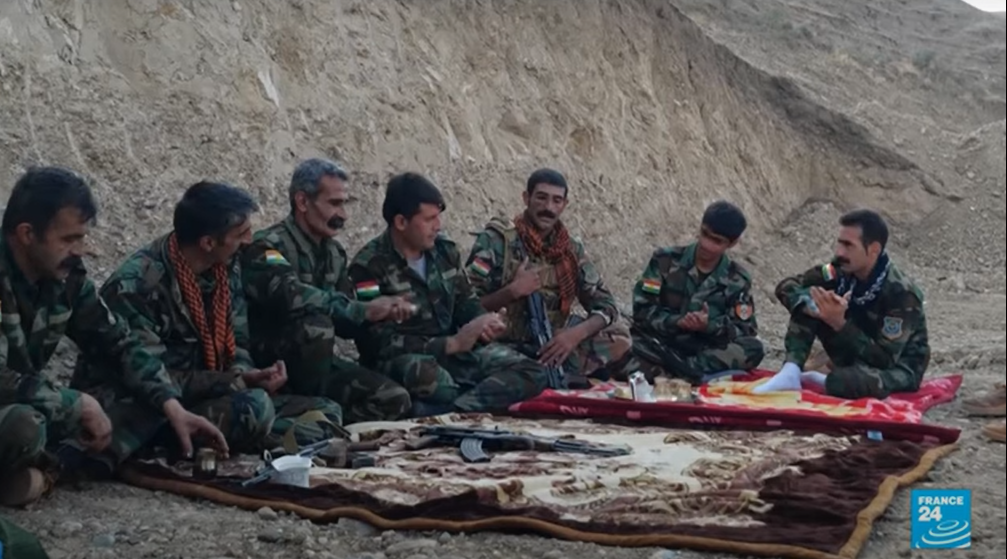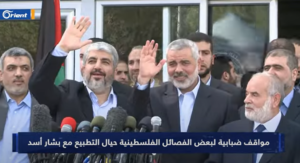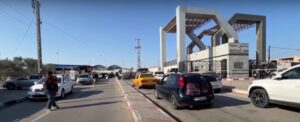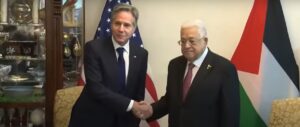In March of last year, Iran launched 12 ballistic missiles at the American consulate complex in Irbil, where, according to Iran, there is a base of the Israeli Mossad, from where the February 2022 Israeli drone attack on the Iranian drone base in Kermansha in western Iran was planned.
According to Western intelligence sources, the Israeli attack was successful and more than a hundred Iranian drones of various types that were stored in hangars on the ground were destroyed.
The Iranian missile bombing of Irbil was also a warning signal from the Iranian regime to Muqtada Sader not to cooperate with the Kurds in Iraq led by Massoud Barzani, the leader of the Kurdish Democratic Party, since these Kurds are cooperating with the Israeli Mossad.
It seems that the Iranians find the Kurds in Iraq a scapegoat every time the Israeli Mossad makes a successful operation against them on their soil.
Said Irvani, Iran’s ambassador to the United Nations, accused Israel of being responsible for the successful attack by drones carrying explosives a few days ago on the military facility in the city of Isfahan where Iran manufactures advanced drones and missiles.
He called on the UN Security Council to condemn Israel for the attack and said that Iran stands by its legitimate right to defend its national security and respond decisively to any threat from Israel at any time and in any place.
The Iranian news agency Noor News accused that the parts of the drones and the explosives used to attack the facility in Isfahan were smuggled into Iranian territory by Kurdish rebel groups from the Kurdistan region of Iraq.
It is not impossible that the Iranians will now try to save their honor through another missile attack on Kurdish targets in the Irbil region of Iraq, the fact that the Iranians actually admitted that the drones were launched from Iranian territory towards the secret facility in Isfahan indicates that the Israeli Mossad operates a large infrastructure of agents inside Iran under the nose of the Iranian security services.
The Iranians consider Masoud Barzani’s relationship with Israel, which controls part of Kurdistan and especially the city of Irbil, a major security breach that allows the Israeli Mossad agents to cross the border to carry out espionage and sabotage activities in Iran, Iraq and Syria.
The Iranians claim that the Israeli Mossad operates in the Kurdistan region under the auspices of the American presence in Iraq in close cooperation with the CIA.
Foreign intelligence sources claim that the Iranian claims are not completely unfounded and indeed the Israeli Mossad has a secret representation in Kurdistan operating under the auspices of the Americans.
The Jerusalem Post reported in a report on June 7, 2006 that Masoud Barzani, leader of the Kurdish Democratic Party, said the following: Establishing relations with Israel is not a crime, if Baghdad establishes relations with Israel, an Israeli consulate will be opened in Irbil.
Security officials in Israel say that the Israeli presence in Kurdistan is not new, Israel is the only country that supports and trains Kurdish fighters and that it has good and strong relations with them, especially with the Kurdish Democratic Party.
Relations between Israel and the Kurds began in the mid-fifties of the 20th century, the Kurds saw Israel as a model for their national aspirations for independence and the establishment of a Kurdish state,
Moustafa Barzani, the founder of the Kurdish Democratic Party and the father of Masoud Barzani, the current head of the party, secretly visited Israel several times and met with prime ministers and senior security officials.
In 1963, the head of the Mossad at the time, Meir Amit, ordered to tighten the secret ties with the Kurds and to give the Kurds military assistance that lasted for several years.
Senior officials in the Israeli security establishment have also secretly visited the Kurdish region in Iraq over the years and met with Masoud Barzani.
Israel’s secret alliance with the Kurds provides Israel with eyes and ears in Iran, Iraq and Syria, so says a senior security official, the ties between Israel and the Kurds in Iraq are extensive in all respects and cannot be expanded upon in order not to harm them.
The Iranians were again surprised by the Israeli surprise attack on their secret facility in Isfahan,
Now Iran is trying to discourage the Kurds so that they will not cooperate with Israel.
The Kurds are not the only ones that Iran accuses of helping the Israeli Mossad, they also blame neighboring Azerbaijan that it allows the Mossad to operate from its territory against Iranian targets.
Azerbaijan, for its part, claims that Iran supports its enemy Armenia in the conflict over the Nagorno-Karabakh region and that it threatens the stability of the government in Azerbaijan.
As mentioned, the Israeli security presence in Kurdistan is not new, Israel estimates that the Iranians will not succeed in deterring the Kurds who see Israel as an important ally.
The Israeli attack on the facility in Isfahan is not the last, therefore the Iranians are very stressed and are shooting in all directions, they estimate that additional Israeli attacks on sensitive facilities in Iran will come soon.




